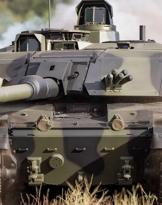The story is a summary that comes from the first marshal of transmissions Filippo F., retired for years, of whom we have already had the opportunity to appreciate other contributions.
The relevant aspect of the story, divided into three parts, brings together the practical evolution of our army with the human and daily problems of young non-commissioned officers in close contact with the conscripts of the past.
SAS
In 1965, the SME ordered the unification of non-commissioned officer training, establishing a single "Non-Commissioned Officer Student School" based in Viterbo. The marshal enlisted in '67 to follow the seven-month course.
After three months, the transition to corporal took place, after seven that of corporal major. Then followed five months of specialization school and finally sending to the operational departments as corporal majors. Only if suitable, the transition to sergeant took place after a total of eighteen months.
The following year things changed and people were already joining the department as sergeants.
October 2, 1968...
The marshal says: After the specialization course at the "School of Transmissions" in Rome, I and a peer of mine named Luigi, with the rank of corporal major, arrived at the department in Milan. It is October 2, 1968 at 07,30 in the morning, after 13 hours of travel on the Rome-Milan military train.
During the journey we had also stopped at the Bologna station, it had snowed during the night and there was a lot of snow on the station pavements. A 24-year-old classmate of ours, Sicilian and native of the town of Vittoria, had been transferred to the XNUMXth Transmission Battalion based in Bolzano. As soon as they reached the station he woke up and, looking through the train window, for the first time in his life he saw snow! Like a child, emotion and amazement assailed him. He told us he would like to touch her with his hands and we all encouraged him to do so. Fate made him become an Alpine mountaineer... once he arrived at his destination he would see a lot of snow. I have But learned that he was discharged when his term of service expired.
Broadcast Barracks
In MilanAs soon as we entered the barracks, we received a scolding from the commander of the transmissions of the 3rd Army Corps who had come down from his quarters at that moment. According to him, the coat we were wearing was creased. In fact it was true, but we had worn it all night because it was very cold on the train and, on the train, the heating didn't work.
The colonel was old, very tall and thin, with a gaunt face; I remember very large teeth and a dark complexion. He was wearing a long coat and it was scary just to look at him.
In the barracks square there was a great movement of men and vehicles, and much agitation among the staff. I later understood that the unit was preparing for an exercise in various locations in Friuli and the departure was scheduled for the following week.
Stooges and "sign makers"
I realized that, for us non-commissioned officer students, the psychological impact in the operational department was devastating, thinking of all the discipline imparted at the student school. There was no response in the department and my classmate and I realized that living with soldiers who were carrying out compulsory military service for 15 months was something completely different. Many of these behaved very far from the idea we had at the School. Looking carefully at their behavior we soon realized that, for some, non-commissioned officers up to the rank of sergeant were not even taken into consideration. Others, in addition to being undisciplined, were aggressive enough to intimidate the young non-commissioned officers.
Laws "Stars of the past (second part): the art of making do"
Photo: author












